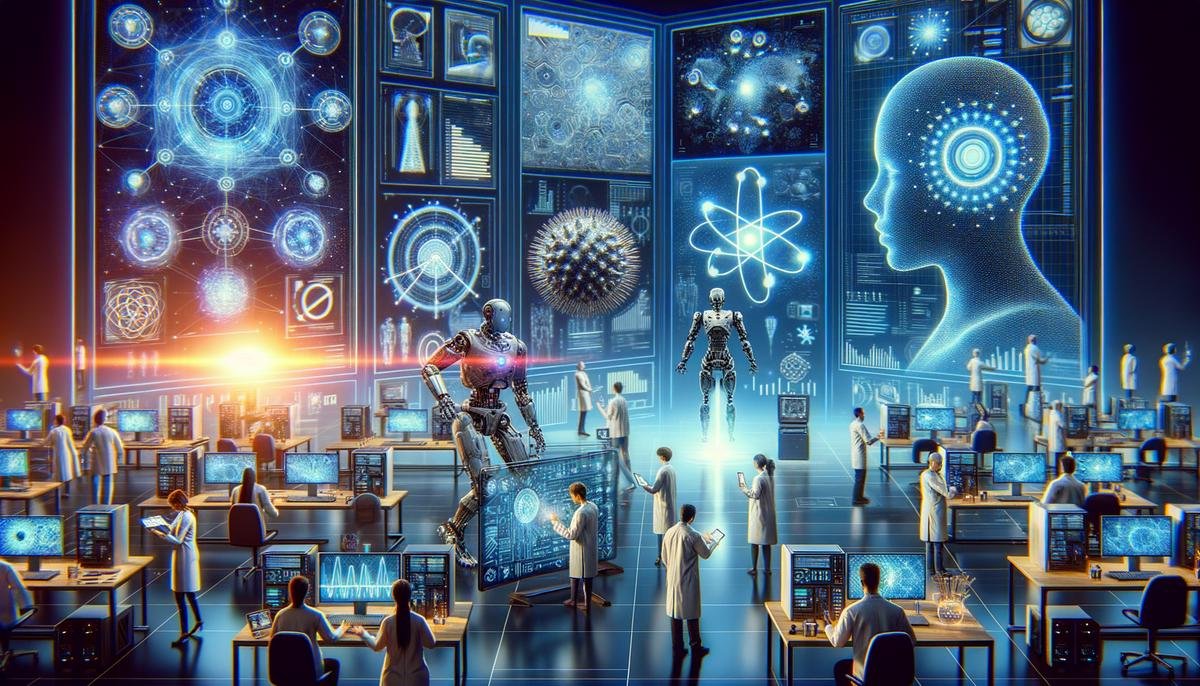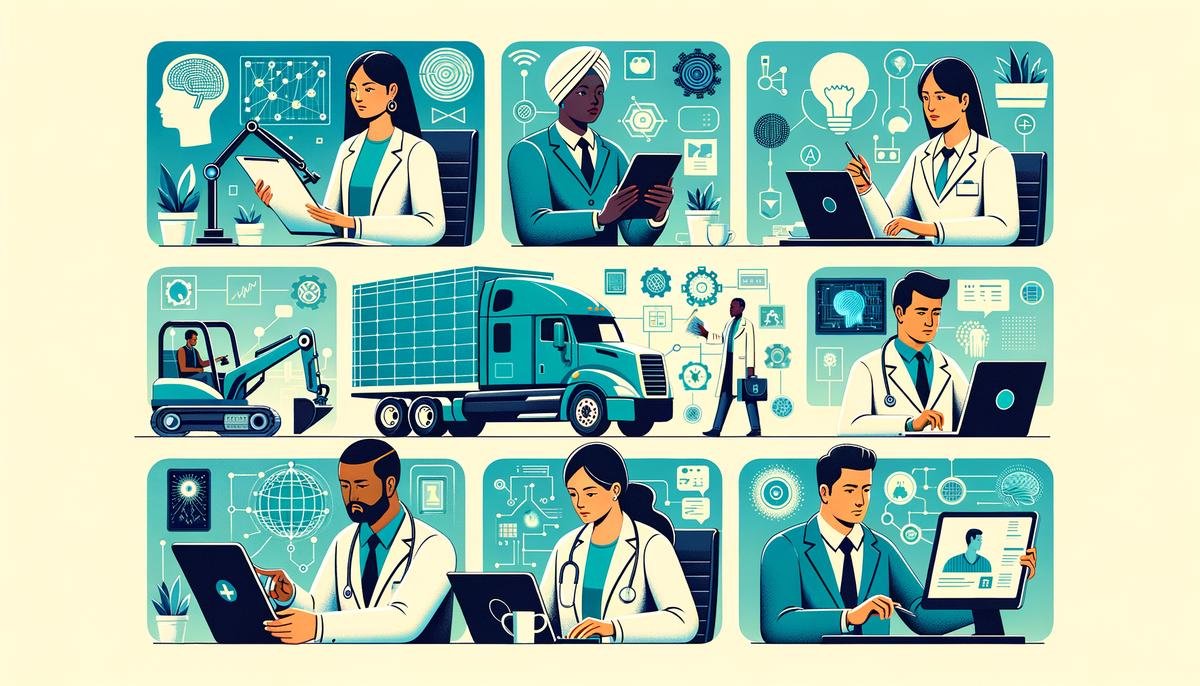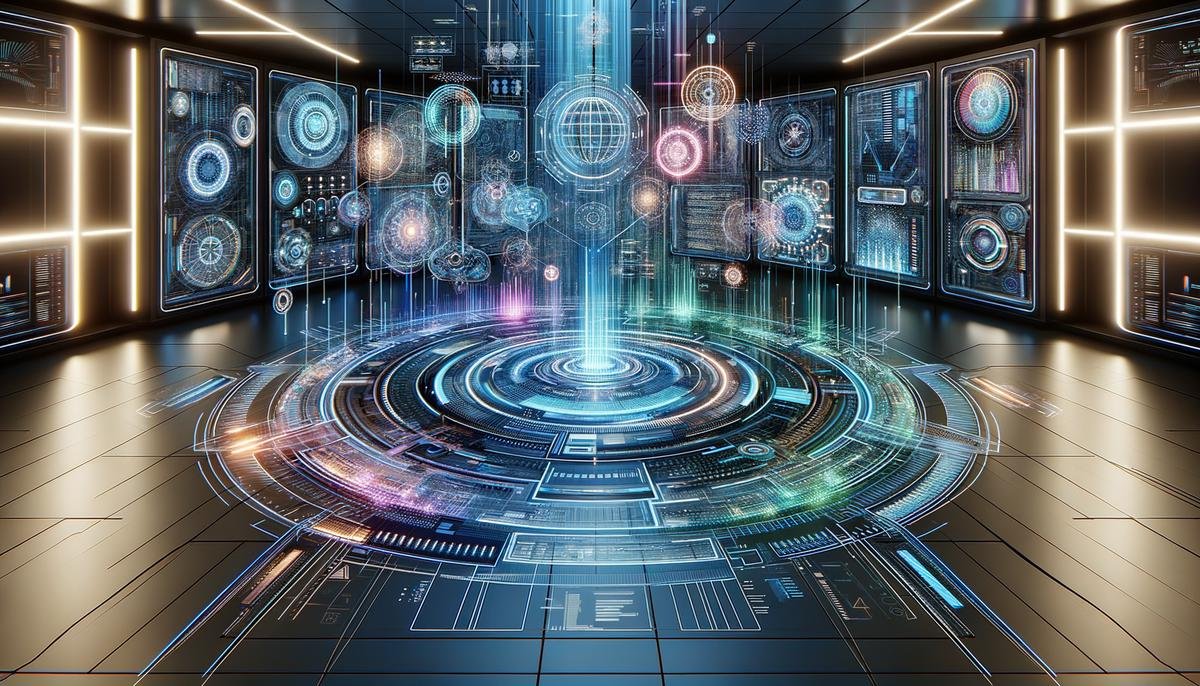Advancements in Machine Learning and AI Algorithms
Machine Learning’s Evolution in the Next Decade: A Comprehensive Forecast
As we gaze into the technological frontier, the evolution of machine learning (ML) over the next decade is poised to redefine the boundaries of innovation. Building upon a foundation of sophisticated algorithms, machine learning is on a trajectory that promises to bring about profound changes across various sectors. From healthcare diagnostics to autonomous vehicles, the potential applications are as expansive as they are transformative.
One of the core advancements we can expect is the refinement of algorithmic efficiency. Today’s algorithms, while powerful, often require substantial computational resources. Researchers are making strides toward more streamlined algorithms that can learn from smaller datasets and execute tasks more swiftly. This progress is anticipated to dramatically reduce the energy consumption of ML models, making them not only more environmentally friendly but also more applicable in resource-constrained scenarios.
Another significant development in the realm of machine learning is the advent of federated learning. This technique allows for the training of ML models across multiple devices, ensuring data privacy and security. As concerns over data privacy continue to escalate, federated learning presents a method by which personal information can stay on the user’s device, never needing to be shared with a central server. Given the growing scrutiny over data practices, this approach may become a staple in the development of consumer-oriented machine learning applications.
Moreover, the integration of machine learning with quantum computing heralds a new frontier for computational capabilities. Quantum computers, with their ability to handle complex calculations at unprecedented speeds, could unlock new possibilities for machine learning algorithms. This synergy has the potential to accelerate drug discovery, enhance climate modeling, and revolutionize encryption methods, amongst other applications.
In the realm of artificial intelligence (AI), we shall witness machine learning algorithms becoming increasingly adept at understanding and generating human language. The evolution of natural language processing (NLP) technologies will pave the way for more nuanced and context-aware AI assistants. These advancements will not only improve user experience but also expand the accessibility of digital technologies, breaking down language barriers and enabling more natural interactions with machines.
Additionally, the democratization of machine learning tools stands as a pivotal trend. As platforms and frameworks become more user-friendly, a broader range of professionals will be able to implement ML solutions without needing a deep background in computational theory. This trend will encourage innovation, foster interdisciplinary research, and potentially accelerate the discovery and implementation of ML applications in niche markets.
The next decade of machine learning evolution also hints at a paradigm shift in the job market. As automation and AI technologies assume routine tasks, new career opportunities are expected to emerge in data analysis, machine learning model training, and AI ethics, among others. This transition underscores the importance of adaptability and lifelong learning in the digital age.
In sum, the coming decade will be marked by significant strides in machine learning technology. Through advancements in algorithms, the fusion with quantum computing, and the move towards ethical and privacy-respecting practices, machine learning is set to redefine what’s possible. As we look forward, the confluence of these developments promises not only to enhance our digital experience but also to address some of the most pressing challenges facing humanity today.

Impact of AI on the Job Market
As Artificial Intelligence (AI) continues its rapid evolution, its influence spans across various sectors, reshaping the employment landscape in profound ways. One significant area affected by these advancements is the job roles and skills demanded in the workforce. As AI technologies become more sophisticated, certain tasks that were traditionally performed by humans are being automated. This transition is not limited to manual, repetitive tasks; AI’s capabilities in areas such as analysis, decision-making, and even creative processes mean that higher-skilled roles are also experiencing a change.
The rise of AI is creating a surge in demand for jobs that specifically cater to the development, maintenance, and ethical management of these technologies. Roles such as AI specialists, data scientists, machine learning engineers, and robotics engineers are becoming increasingly crucial. This demand highlights a shift toward more technical, STEM-related fields, underscoring the importance of skills in coding, data analysis, and the ethical implications of technology.
Simultaneously, as AI takes over certain tasks, there is a growing need for human-centric skills that AI cannot replicate as effectively. Emotional intelligence, creativity, critical thinking, and interpersonal communication are becoming more valuable. Jobs that rely heavily on these skills, such as those in the arts, counseling, and management, are likely to see a rise in importance. This shift suggests a future workforce that is a blend of technical acumen and strong emotional intelligence, signaling a comprehensive approach to education and skill development.
Moreover, the impact of AI on employment is fostering a dynamic where lifelong learning becomes essential. The rapid pace of technological change means that skills can become obsolete quickly. Workers are encouraged to adopt a mindset of continuous learning, keeping abreast of the latest technologies and methodologies. Educational institutions and businesses are recognizing this need, offering more opportunities for upskilling and reskilling. This approach to education and training emphasizes flexibility and adaptability, preparing individuals to navigate a future where change is the only constant.
Another aspect influenced by AI advancements is the structure of work. Remote working technologies, virtual collaboration tools, and AI-driven management systems are reshaping the traditional workplace. The increased automation of routine tasks allows workers to focus on more complex, value-added activities, potentially leading to more fulfilling roles. However, this transition also raises questions about job displacement, the digital divide, and the need for social policies to support those impacted by technological change.
In conclusion, the advancements in AI are significantly affecting employment, from the types of jobs available to the skills required to excel in them. This evolution is prompting a reevaluation of education, training, and workplace practices, emphasizing the importance of adaptability, continuous learning, and a balance between technical and human-centric skills. As we navigate these changes, the challenge lies not only in harnessing the power of AI but also in ensuring that the benefits are widely distributed, supporting a future that is inclusive and equitable.

Ethical Considerations and AI Governance
To navigate the complex world of artificial intelligence (AI) and its ethical dilemmas, society is turning its focus to a variety of forward-thinking strategies. Among these, the establishment of ethical AI frameworks stands out as a key approach. Governments, companies, and academic institutions are collaboratively working to create guidelines that ensure AI development aligns with ethical standards. These frameworks often emphasize transparency, fairness, and accountability, aiming to protect individual privacy and prevent biases in AI algorithms.
Moreover, the engagement of ethical oversight committees is gaining traction. Such committees, comprised of experts from diverse fields, are tasked with reviewing AI projects and initiatives. Their role is to identify potential ethical concerns and provide recommendations to mitigate these risks, ensuring that AI technologies are developed and deployed responsibly.
Another significant move towards addressing AI’s ethical challenges involves public discourse and education. By fostering an informed dialogue among citizens, policymakers, and technologists, society can better understand and articulate its expectations from AI. Educational programs and public awareness campaigns are instrumental in demystifying AI, highlighting its benefits, and discussing its societal implications.
Furthermore, the implementation of AI ethics in education and corporate training programs has become crucial. Educators and business leaders are increasingly integrating ethics into the AI curriculum and professional development programs. This helps to cultivate a generation of AI developers, users, and policymakers who are conscious of the ethical dimensions of the technologies they work with.
Lastly, the development of AI ethics standards and certification processes is on the rise. These standards provide benchmarks for ethical AI development and deployment. Certification programs, in turn, offer a way for organizations to demonstrate their commitment to ethical AI practices, building trust among users and stakeholders.
In conclusion, society is actively seeking solutions to the ethical dilemmas posed by AI through multi-faceted approaches. From creating ethical frameworks and oversight committees to promoting public discourse, education, and industry standards, these efforts aim to guide the development and use of AI in a manner that respects human values and rights. As AI technology advances, continued vigilance and collaboration among all stakeholders will be essential to navigate the ethical landscape successfully.

Integration of AI in Everyday Life
As we steer into the next decade, AI integration will profoundly transform our daily life, making it crucial to understand its potential impacts. Among the most significant changes will be in the realms of healthcare, personal assistance, and privacy.
In healthcare, AI’s advancements will turn once complex and inaccessible diagnostics into routine checks. Imagine AI-powered devices at home that can predict flu outbreaks or monitor chronic conditions in real time, notifying healthcare providers at the first sign of trouble. This could not only save countless lives but also revolutionize the patient-doctor relationship.
Meanwhile, personal assistants, which today are limited to setting reminders or playing music, will evolve into sophisticated systems managing our schedules, finances, and even interpersonal relationships. They’ll make decisions based on our preferences, health, and safety, becoming indispensable in our daily routines.
However, this deep integration of AI into our lives raises substantial privacy concerns. As these systems learn more about us, the boundary between useful and intrusive can blur. Our data, from health to financial information, will need protection against not just hackers but also against overreach by corporations and governments.
Moreover, the impact on education will be revolutionary. Traditional learning methods will adapt to leverage AI, providing personalized learning experiences that cater to each student’s pace and style. This could potentially close the education gap by offering high-quality, tailored education resources to students worldwide, regardless of their geographical or socio-economic status.
In summary, as AI becomes more intertwined with every aspect of our lives, its potential to improve healthcare, personal assistance, and education is immense. However, navigating privacy concerns and ensuring ethical guidelines are in place will be critical to harnessing AI’s benefits while safeguarding our societal values. The next decade promises to be a pivotal period in shaping a future where AI enhances our daily lives, not just through efficiency and convenience but by fostering a more inclusive, healthy, and educated society.





